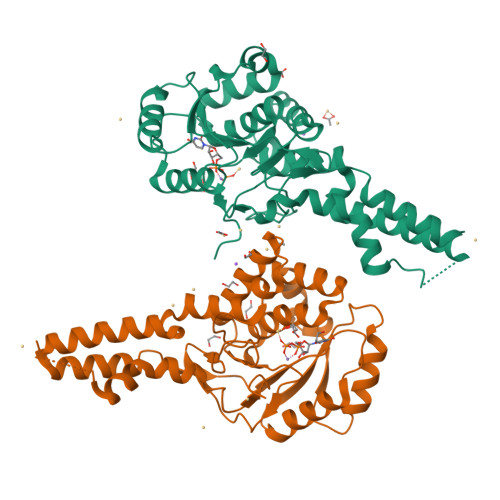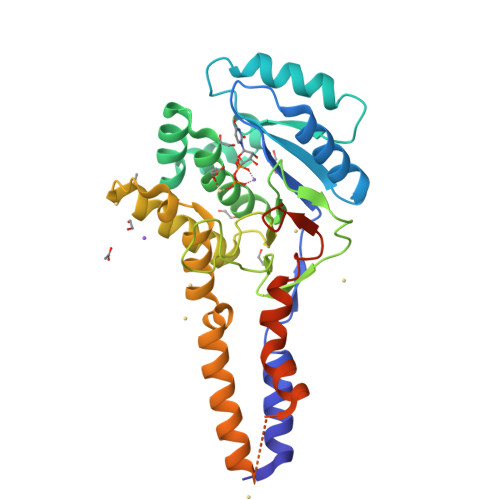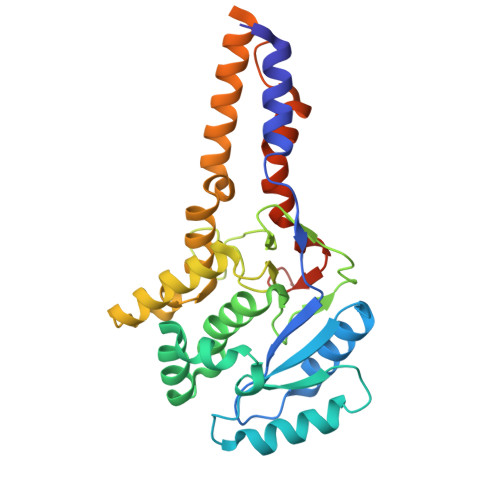Tyrosine-modifying glycosylation by Yersinia effectors.
Schneider, S., Wirth, C., Jank, T., Hunte, C., Aktories, K.(2024) J Biological Chem 300: 107331-107331
- PubMed: 38703997
- DOI: https://doi.org/10.1016/j.jbc.2024.107331
- Primary Citation of Related Structures:
8OVS, 8OVT - PubMed Abstract:
Mono-O-glycosylation of target proteins by bacterial toxins or effector proteins is a well-known mechanism by which bacteria interfere with essential functions of host cells. The respective glycosyltransferases are important virulence factors such as the Clostridioides difficile toxins A and B. Here, we describe two glycosyltransferases of Yersinia species that have a high sequence identity: YeGT from the zoonotic pathogen Yersinia enterocolitica and YkGT from the murine pathogen Yersinia kristensenii. We show that both modify Rho family proteins by attachment of N-acetylglucosamine (GlcNAc) at tyrosine residues (Tyr-34 in RhoA). Notably, the enzymes differed in their target protein specificity. While YeGT modified RhoA, B and C, YkGT possessed a broader substrate spectrum and glycosylated not only Rho but also Rac and Cdc42 subfamily proteins. Mutagenesis studies indicated that residue 177 is important for this broader target spectrum. We determined the crystal structure of YeGT shortened by 16 residues N-terminally (sYeGT) in the ligand-free state and bound to UDP, the product of substrate hydrolysis. The structure assigns sYeGT to the GT-A family. It shares high structural similarity to glycosyltransferase domains from toxins. We also demonstrated that the 16 most N-terminal residues of YeGT and YkGT are important for the mediated translocation into the host cell using the pore-forming protective antigen of anthrax toxin. Mediated introduction into Hela cells or ectopic expression of YeGT and YkGT caused morphological changes and redistribution of the actin cytoskeleton. The data suggest that YeGT and YkGT are likely bacterial effectors belonging to the family of tyrosine glycosylating bacterial glycosyltransferases.
Organizational Affiliation:
Institute for Experimental and Clinical Pharmacology and Toxicology, Faculty of Medicine, University of Freiburg, D-79104 Freiburg, Germany.

























